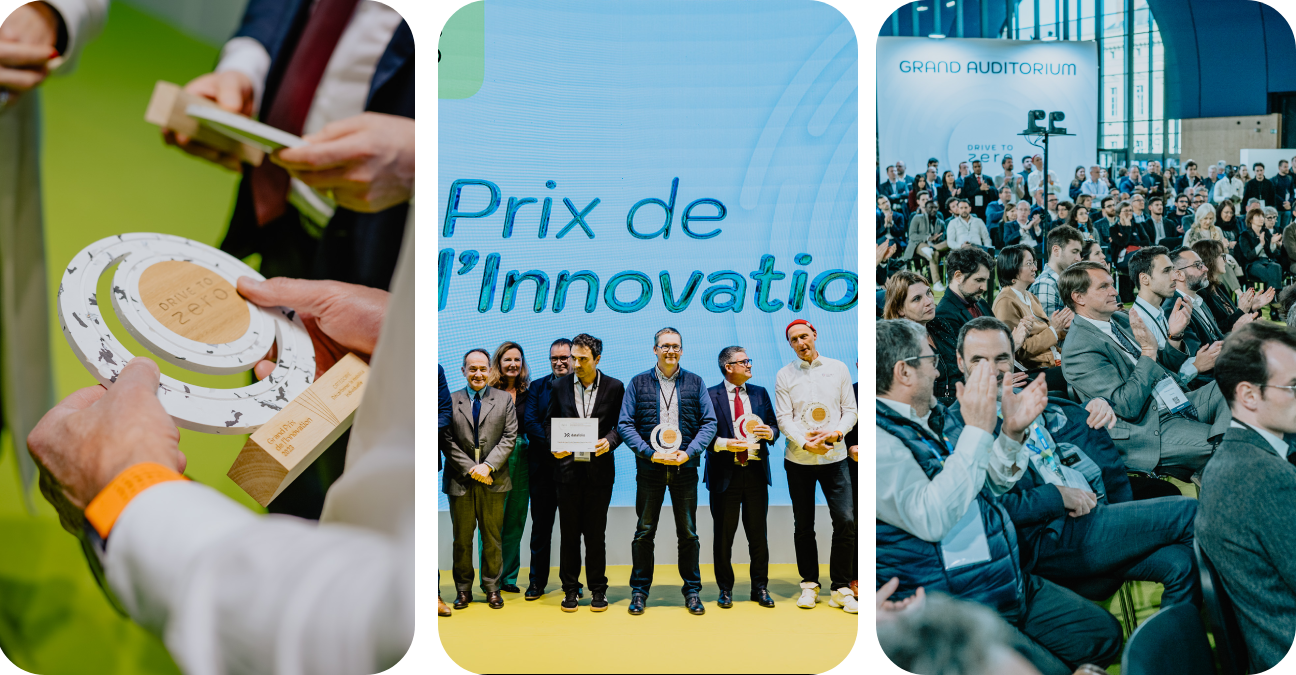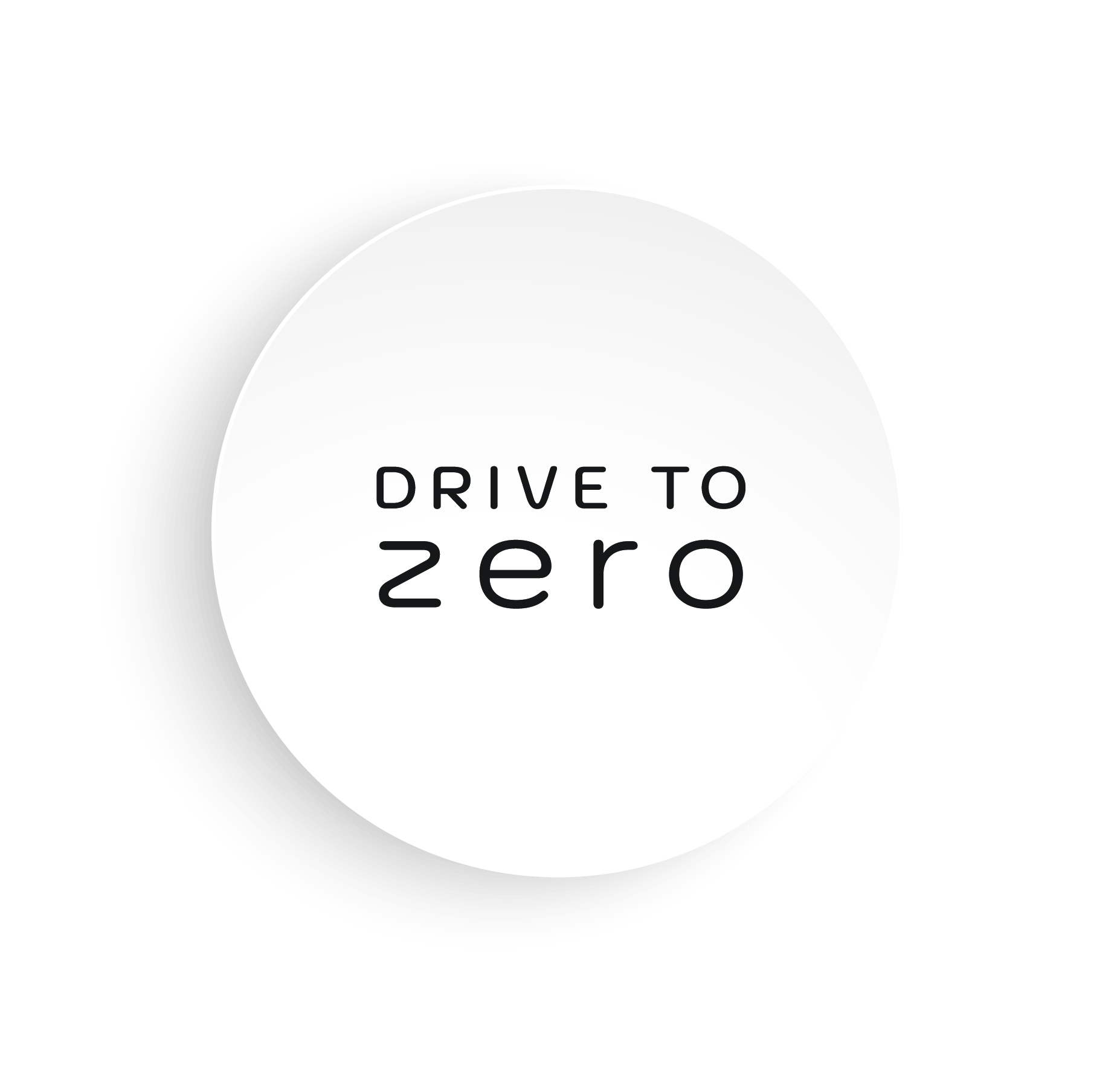Mobility, particularly road transport, is one of the main sources of CO2 emissions, making a significant contribution to global greenhouse gas emissions. Given the urgency of climate change, reducing these emissions is imperative if we are to combat global warming. This task requires a systemic approach that embraces a multitude of solutions: diversification of modes of transport, adoption of renewable energies, and development of appropriate infrastructure. By focusing on sobriety and efficiency, innovation becomes a crucial lever for reducing emissions.
The Drive to Zero exhibition is playing a key role in this effort, supporting the mobility ecosystem as it moves towards decarbonisation. By celebrating innovation through the Drive to Zero 2024 Innovation Awards, this event highlights the importance of rethinking our mobility for a sustainable future, by encouraging the development and adoption of less carbon-intensive technologies and practices.
A l’aube de l’édition 2024 du salon Drive to Zero, nous avons le plaisir de vous présenter les sept nouvelles catégories du Prix de l’Innovation DTZ, chacune représentant un enjeu majeur pour la réduction des émissions de CO2 dans l’écosystème de la mobilité :
- Public transport (passengers) and transit:Public transport is a fundamental pillar in reducing CO2 emissions. However, the rise in individual modes of mobility, particularly car use, is tending to reduce the modal share of public transport. This category rewards innovations that increase the efficiency and sustainability of public transport, playing a crucial role in reducing emissions by optimising passenger flows. Projects in this category should therefore focus on innovative solutions to enhance the attractiveness and accessibility of public transport, in order to encourage a transition towards more ecological and efficient modes of travel.
- Active modes: Active modes, such as walking and cycling, play a key role in reducing CO2 emissions by offering a viable alternative to individual motorised mobility. This category encourages the development of innovative solutions to promote these modes of transport, by improving their safety, accessibility and practicality. By recognising innovations in this field, we are supporting the transformation towards healthier, less polluting urban mobility.
- Long-distance freight, Urban logistics: Urban logistics and long-distance freight are at the heart of the environmental challenges linked to mobility, because of their significant impact on CO2 emissions. This category rewards innovations that optimise freight flows, reduce distances travelled and improve the efficiency of freight transport, thereby contributing to greener, more sustainable logistics.
- Mobility services and support: In an increasingly connected world, mobility services and digital media offer unprecedented opportunities to optimise journeys and reduce emissions. This category highlights innovations that use technology to facilitate intelligent mobility, encouraging more sustainable transport choices and enhancing the user experience.
- Vehicles technology and innovation: Advances in vehicle technology, including clean powertrains, innovative materials and energy management systems, are essential to reducing the sector’s emissions. This category celebrates innovations that push back the limits of ecological vehicle performance, marking a step towards zero-emission mobility.
- Infrastructure & Energy: Charging infrastructure, renewable energy solutions and sustainable energy management systems are crucial to supporting the transition to low-carbon mobility. This category rewards projects that contribute to the development of a sustainable energy ecosystem, directly supporting the reduction of CO2 emissions.
- Infrastructure & Development: Land use and urban planning have a profound influence on mobility choices and, consequently, on CO2 emissions. This category honours innovations that facilitate the harmonious cohabitation of different modes of transport, promoting urban environments that encourage sustainable travel and reduce the need for individual motorised journeys.
Call for applications
We invite innovators, companies and researchers to submit their projects before 6 May 2024. Selection criteria include originality, potential impact on reducing CO2 emissions, and the feasibility of the innovation. To participate, you can submit an application on: https://event.drivetozero.fr/fr/prix-de-l-innovation-2024
A hand-picked panel of experts
The selection panel for the Drive to Zero Innovation Awards is made up of a diverse ecosystem of institutional partners, experts, influencers and leaders in carbon-free mobility. The assembly represents a wide range of key organisations in the field, including ADEME, ASFA, Association des maires de France, ATEC ITS, AVERE France, FNCCR, FNTR, FNTV, France Urbaine, IDRRIM, Institut Vedecom, OPCO Mobilités, ESTACA, La Fabrique de la Cité, cerema, The Shift Project, Mobilians, PFA, Routes de France. Their collective expertise ensures a rigorous assessment of the applications, highlighting innovation and commitment to more sustainable mobility.
Conclusion By reaffirming our commitment to sustainable mobility, the Drive to Zero 2024 Innovation Award underlines the crucial importance of innovation in achieving this goal.
To apply or find out more: https://event.drivetozero.fr/fr/prix-de-l-innovation-2024

